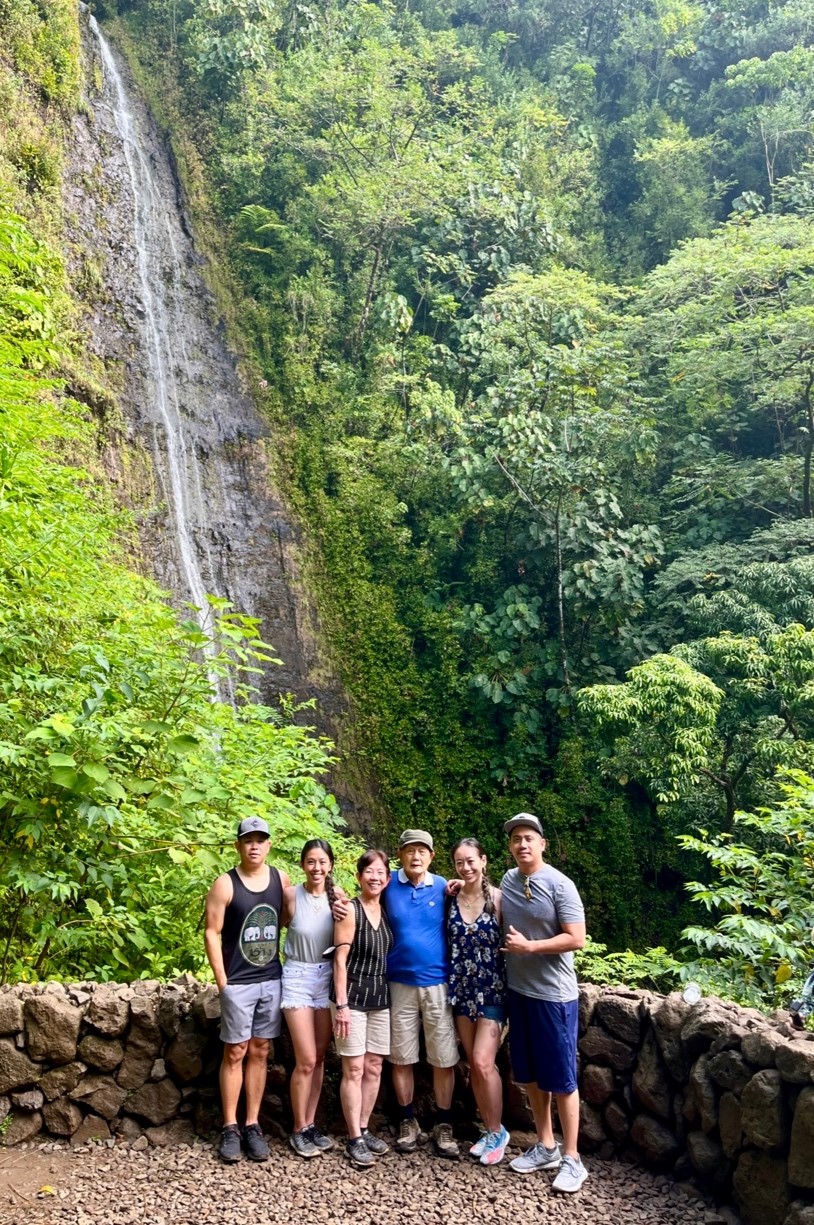The GW Nursing Office of Research sat down with Daisy Le, Ph.D., M.P.H., M.A., Associate Professor at the GW School of Nursing, to learn more about her and her work at GW.
Hometown
I was born in San Francisco, California, but my roots trace back to Vietnam. My family came to the U.S. as refugees after the war - rebuilding their lives from scratch with no formal education, no English, and very little support. We shared a single-room studio with multiple families in those early years. Growing up in a refugee household shaped how I see the world - and how I show up in my work. I witnessed firsthand how health, language, and education systems can either widen or close gaps. Those early experiences continue to inform my commitment to a public health approach that is not only evidence-based but also equity-centered and human-focused.
Educational Background
I earned both of my undergraduate degrees from UCLA, in Sociology and Asian American Studies. I then completed a dual MPH/MA at UCLA, studying Public Health and Asian American Studies, with added specializations in Global Health and Health Promotion & Education.
I went on to earn my PhD in Behavioral and Community Health at the University of Maryland and later trained as a postdoctoral fellow in the Department of Epidemiology at the Johns Hopkins Bloomberg School of Public Health, supported by a T32 in cancer prevention and control.
How I Got Interested In Research
Research wasn’t something I grew up around - I didn’t even know it could be a career. But during college, I realized that research could be a powerful tool for justice when done in partnership with the communities it aims to serve. I began to see how research could be more than data collection - it could amplify community voices, challenge the status quo, and help shift systems that too often exclude. My lived experience as the daughter of Vietnamese refugees, combined with my academic training, helped me understand how research could bridge the gap between evidence and real-world impact. That realization continues to shape how I design studies, engage with communities, and define success - not only by scientific rigor but by practical, lasting change.
Current Work
I lead MySHARE - My Self-sampling for HPV Awareness, Results, and Empowerment - a multi-phase, community-engaged cervical cancer prevention initiative. The project began with a simple question: How do we actually reach the communities who are most often left behind? Currently supported by the NIH NCI and American Cancer Society, MySHARE integrates HPV self-sampling and health information technology with culturally responsive outreach and education to reach women, including those living with HIV and others facing systemic barriers to care. We’re now preparing an NIH R01 to scale the initiative nationally through a randomized controlled trial using an implementation science lens.
In parallel, I’m pursuing small grant funding to expand MySHARE’s model to address a broader range of HPV-associated cancers through anogenital and oropharyngeal self-sampling - particularly among high-risk populations such as men who have sex with men. Through my I-CHARM Research Lab (Innovations in Community Health Advocacy, Research, and Messaging), I also mentor scholars across the pipeline - from high school students to doctoral trainees - and lead or collaborate on other projects focused on cancer disparities, health communication, technology equity, and systems-level transformation.
Fun Facts
My husband and I foster puppies and kittens in our spare time, and we love exploring new places and trying new foods. With our families based in California and Hawaii, travel remains an integral and joyful part of our lives.
I’m also an outdoor enthusiast, especially when it comes to paddleboarding, hiking, and camping. One of my favorite hikes is The Narrows in Zion National Park. During my time in LA, I was deeply involved with UCLA UniCamp, the university’s official student philanthropy, and a nonprofit that connects over 450 student volunteers with more than 1,200 children from underserved communities each year. A personal highlight was summiting San Gorgonio, the highest peak in Southern California, with high school students in our Wilderness Adventures in Leadership and Learning (WALL) program for older campers. UniCamp remains one of the most transformative leadership and service experiences of my life; it continues to fuel my commitment to mentorship, community building, and purpose-driven work.


